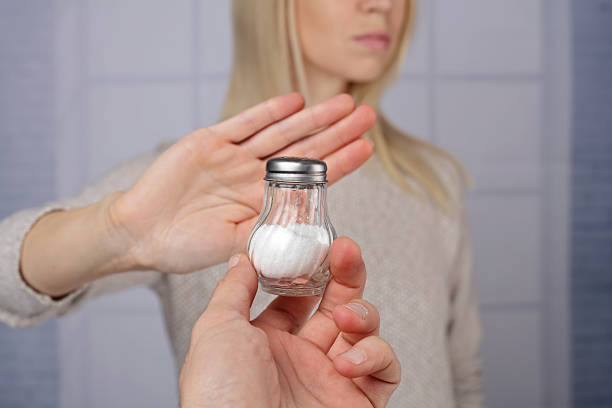The Link Between Salt and High Blood Pressure
Salt (sodium chloride) is an essential nutrient that the
human body needs to function properly. However, excessive salt intake can lead
to high blood pressure, a condition known as hypertension, which is a major
risk factor for many health problems, including heart disease and stroke.
The link between salt and high blood pressure is due to the
way salt affects the human body. Salt contains sodium, which regulates the
fluid balance in the body. When people consume too much salt, the excess sodium
can lead to an increase in fluid volume, which makes the heart work harder to
pump the increased volume of blood, thus increasing the pressure in the blood
vessels. Over time, this can lead to a sustained increase in blood pressure.
The relationship between salt intake and blood pressure is
well established, and research has shown that reducing salt intake can lower
blood pressure in people with hypertension. In fact, reducing salt intake is
one of the most effective lifestyle changes that people can make to lower their
blood pressure. Studies have shown that reducing salt intake by as little as
2-3 grams per day can reduce blood pressure by 2-8 mmHg in people with
hypertension.
However, the impact of salt on blood pressure varies between
individuals. Some people are more sensitive to the effects of salt than others,
and their blood pressure may increase more in response to a high salt diet.
Conversely, some people are less sensitive to the effects of salt, and their
blood pressure may not increase as much. Factors that determine the sensitivity
of an individual to salt include age, gender, genetics, obesity, and other
underlying health conditions.
Salt intake is a major contributor to high blood pressure,
and reducing salt intake is one of the most effective ways to lower blood
pressure. However, reducing salt intake is not enough to completely eliminate
the risk of high blood pressure, and people with high blood pressure often need
to make other lifestyle changes, such as losing weight, eating a healthy diet,
increasing physical activity, and quitting smoking, to manage their blood
pressure.
It is also worth mentioning that not all salt is equal. The
salt used in processed foods is usually refined and contains a high amount of
sodium. Unrefined salt, such as sea salt or Himalayan pink salt, contains other
minerals, such as potassium, magnesium, and calcium, which can have a
beneficial effect on blood pressure. However, these types of salt should still
be used in moderation, as they still contain a significant amount of sodium.
In conclusion, the link between salt and high blood pressure is well established, and reducing salt intake is one of the most effective ways to lower blood pressure. However, reducing salt intake is just one of the many lifestyle changes that people with high blood pressure need to make to manage their condition. A comprehensive approach that includes a healthy diet, regular physical activity, weight management, and avoiding smoking is the best way to lower blood pressure and reduce the risk of heart disease and stroke.








Leave a Reply